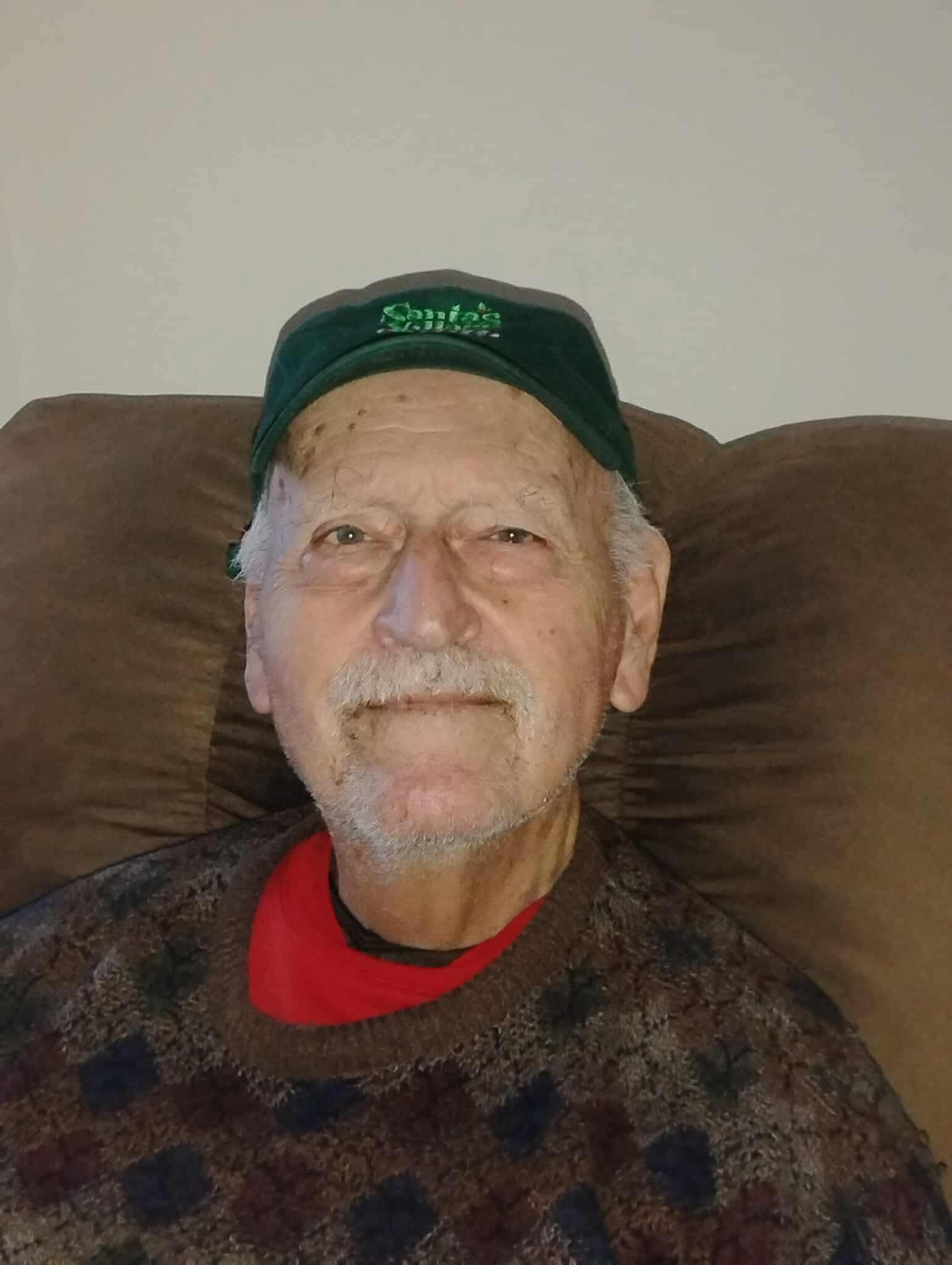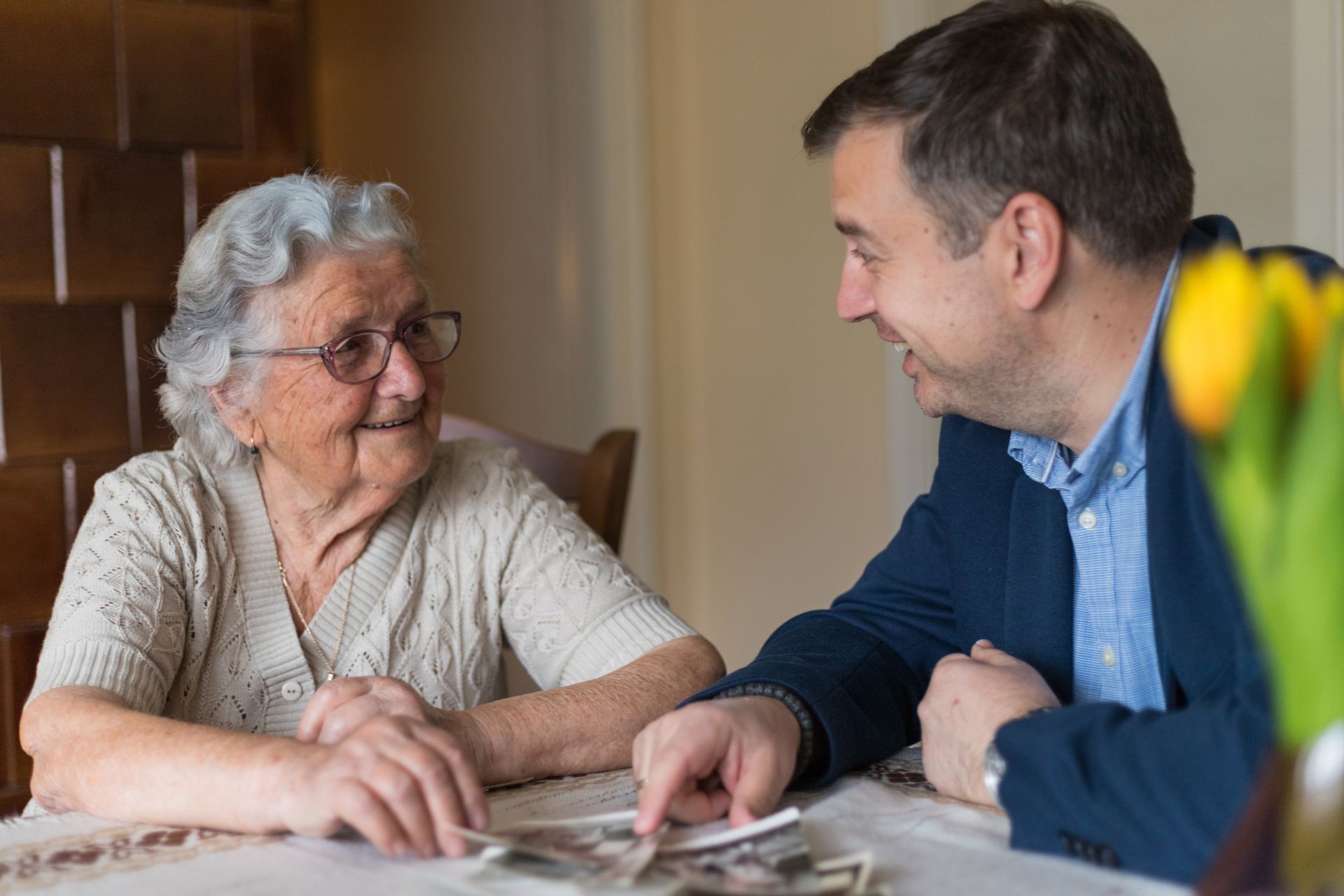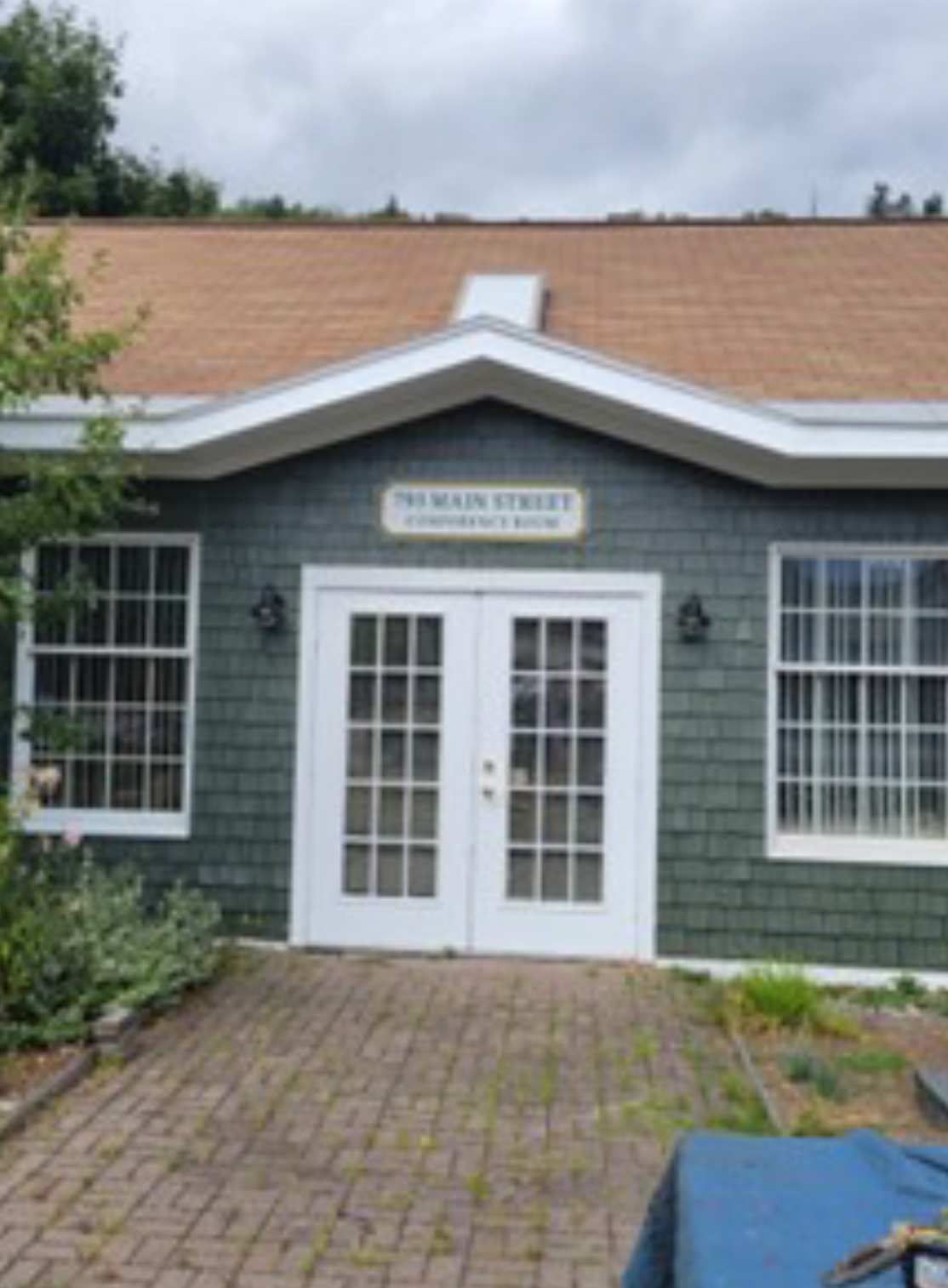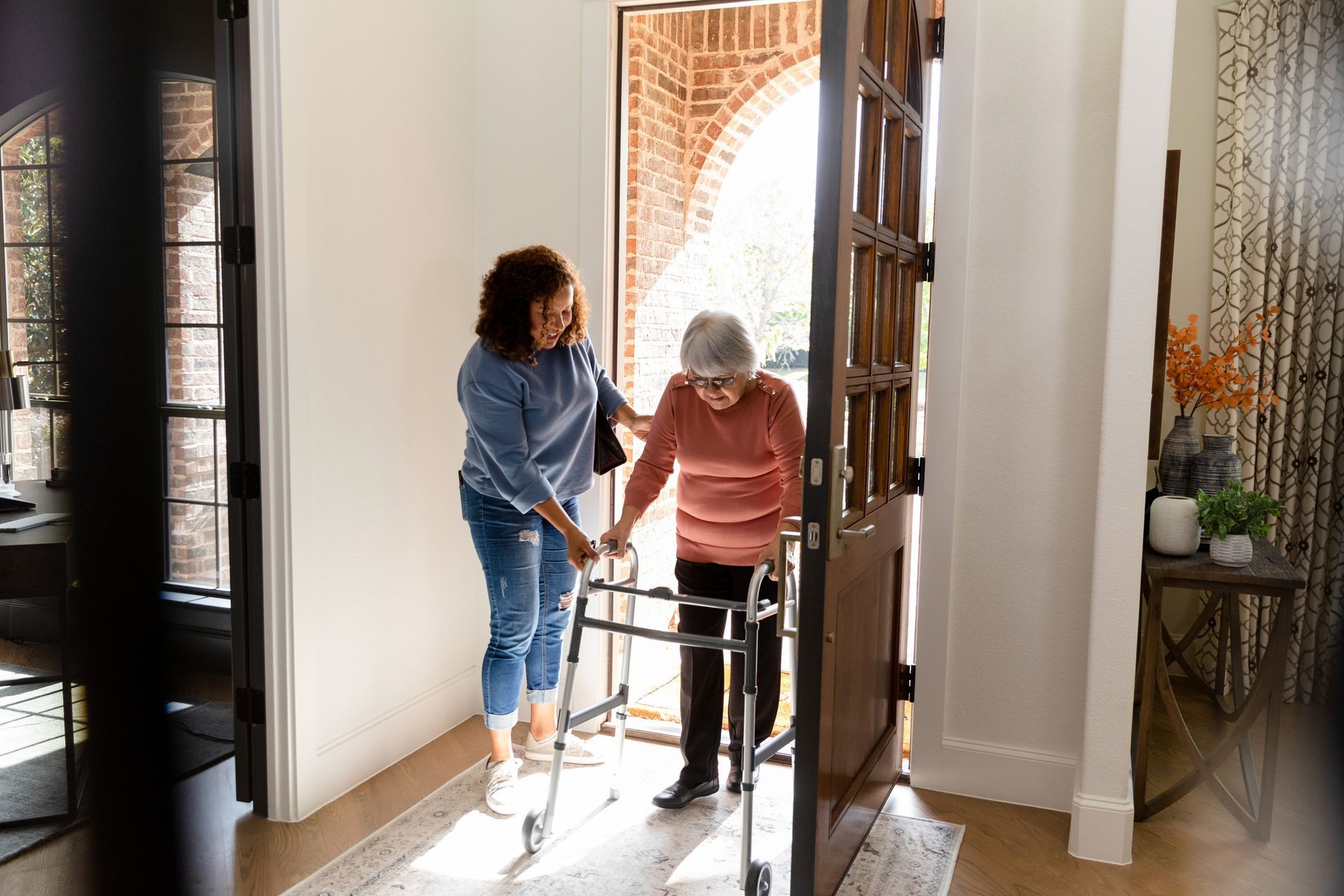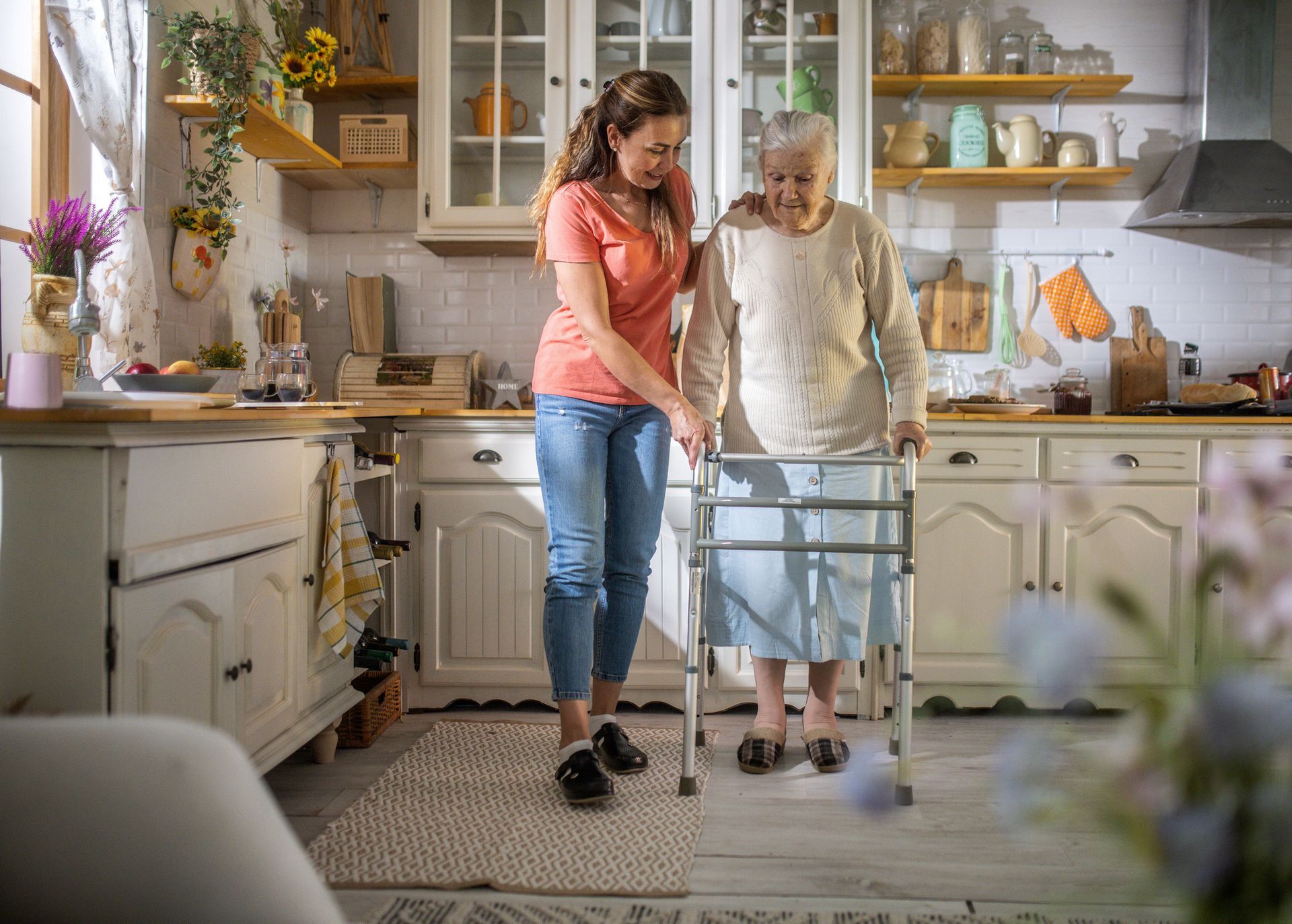When Is It Time for Home Health Care? 8 Key Warning Signs for New Hampshire Families
Watching a loved one struggle with daily activities can be heartbreaking, especially when you live hours away in New Hampshire's rural communities. Many families in Coös County face the challenging question of when their aging parents or recovering relatives need professional support at home. Recognizing the early warning signs can mean the difference between maintaining independence and facing a medical crisis.
Home health care provides skilled medical care and personal support services delivered directly in your loved one's own home. Unlike nursing facility care or assisted living, home health services allow people to receive professional medical care while remaining in familiar surroundings. For New Hampshire families dealing with distance, rural healthcare challenges, and complex medical needs, understanding when it's time for home health care can preserve both safety and independence.
This guide outlines eight key warning signs that indicate your family member may benefit from professional home health services. By recognizing these indicators early, you can take proactive steps to ensure quality care before a crisis occurs.
Understanding When Home Health Care Becomes Necessary
Home health care differs significantly from other care options available to New Hampshire families. While nursing facilities provide 24-hour institutional care and private caregivers offer companion services, home health care delivers skilled medical care on an intermittent basis in the patient's own home.
To qualify for Medicare-covered home health services, three criteria must be met. First, a physician must order the care following a face-to-face assessment. Second, the patient must be considered homebound, meaning they have difficulty leaving home without considerable effort due to illness or injury. Third, the person must need skilled nursing care, physical therapy, occupational therapy, or speech therapy on an intermittent basis.
The importance of recognizing early warning signs cannot be overstated. In rural areas like Coös County, where the nearest hospital may be hours away, waiting until a crisis occurs can result in preventable hospitalizations, emergency room visits, and rapid deterioration of health conditions. Early intervention through home health care services has been shown to reduce hospital readmissions by approximately 16% among high-risk seniors.
Professional home health care helps maintain independence by providing skilled medical care while allowing individuals to remain in their own homes. This approach supports emotional well-being, reduces infection risk compared to institutional settings, and often costs less than facility-based care. For families scattered across New Hampshire's vast geography, home health services provide peace of mind knowing their loved ones receive professional oversight without leaving familiar surroundings.
1. Physical Health Changes That Signal the Need for Professional Care
Physical health changes often provide the clearest indicators that it's time for home health care. When medical conditions become complex or unstable, professional oversight becomes essential for safety and optimal outcomes.
New Chronic Disease Diagnosis
A new diagnosis of chronic health conditions like diabetes, heart disease, or chronic obstructive pulmonary disease (COPD) typically requires specialized knowledge that family members may not possess. Managing diabetes involves understanding blood sugar monitoring, insulin administration, dietary requirements, and recognizing dangerous symptoms. Heart disease patients need careful monitoring of vital signs, medication management, and activity restrictions that require professional assessment.
COPD management becomes particularly complex, requiring knowledge of respiratory therapy techniques, oxygen administration, and medication timing. When Cynthia, a recent COPD patient in northern New Hampshire, began experiencing frequent breathing difficulties, skilled nursing visits helped stabilize her condition through proper medication management and breathing technique education, preventing multiple emergency room visits.
Medication management becomes increasingly complex with chronic conditions. Many older adults manage five or more prescription medications daily, each with specific timing, food requirements, and potential interactions. Home health professionals provide medication education, monitor for side effects, and coordinate with physicians when adjustments are needed.
Recent Hospitalization or Surgery Recovery
The period following hospitalization or surgery represents a critical time when complications can develop rapidly. Post-surgical wound care requires sterile technique and professional assessment to prevent infections that could lead to rehospitalization. Physical therapy needs during recovery help patients regain strength and mobility safely, preventing falls and other complications.
Consider Judy's situation after hip replacement surgery. Living alone in rural Coös County, she needed assistance with wound care, medication management, and physical therapy exercises. Home health services provided skilled nursing for wound assessment and a physical therapist who guided her through safe mobility exercises, preventing complications and speeding her recovery.
Hospital discharge often involves medication changes that require careful monitoring. New prescriptions, dosage adjustments, and discontinued medications create confusion that can lead to dangerous errors. Professional oversight during this transition period helps prevent medication mistakes and ensures proper healing.
For families in areas like Berlin or North Conway, preventing readmission to hospitals becomes particularly important given travel distances and limited local resources. Home health care provides the skilled monitoring needed to catch problems early and coordinate with physicians before issues require emergency intervention.
2. Daily Living Activities Becoming Difficult
When basic activities of daily living become challenging, it often signals the need for professional support. These changes may develop gradually, making them easy to overlook until safety becomes compromised.
Struggling with personal hygiene, bathing, or dressing indicates declining physical capacity that affects health and dignity. Difficulty preparing nutritious meals can lead to malnutrition and medication management problems. Mobility limitations around the home increase fall risk and social isolation.
Home health aide services specifically address these daily living challenges. Trained aides assist with bathing, dressing, meal preparation, and light housekeeping while respecting the individual's independence and preferences. This support helps maintain nutrition, hygiene, and safety while allowing people to remain in their own homes.
The activities of daily living (ADL) assessment process evaluates six key areas: bathing, dressing, eating, toileting, transferring, and continence. When someone needs assistance with two or more of these activities, professional support typically becomes necessary. Home health professionals conduct thorough assessments to determine the appropriate level of care needed.
For New Hampshire families dealing with harsh winters and challenging terrain, maintaining independence in daily activities becomes even more critical. Snow and ice create additional barriers for those already struggling with mobility, making professional support essential for safety.

3. Safety Concerns and Fall Risk
Fall-related injuries represent a leading cause of hospitalization among older adults, making fall prevention a critical indicator for home health care needs. Multiple falls or near-falls in the past six months signal immediate safety concerns that require professional assessment and intervention.
Fear of falling often creates a dangerous cycle where reduced activity leads to muscle weakness, further increasing fall risk. When someone becomes afraid to move around their home normally, they lose strength and balance, creating greater vulnerability to serious injuries.
Home safety hazards like poor lighting, loose rugs, cluttered walkways, and inadequate bathroom safety equipment contribute significantly to fall risk. Many homes in rural New Hampshire have older construction features like steep stairs, narrow doorways, and uneven surfaces that create additional challenges for those with mobility limitations.
Difficulty using assistive devices properly indicates the need for professional evaluation and training. Walkers, canes, and other mobility aids require proper fitting and technique instruction to be effective. Improper use can actually increase fall risk rather than reduce it.
Occupational therapists specializing in home safety conduct comprehensive assessments that identify hazards and recommend modifications. They evaluate lighting, bathroom safety, stair navigation, and furniture placement while teaching safe techniques for daily activities. This professional expertise helps create safer home environments tailored to individual needs and limitations.
Environmental modifications might include installing grab bars, improving lighting, removing trip hazards, and rearranging furniture for safer navigation. These changes, combined with professional instruction on safe movement techniques, significantly reduce fall risk and support continued independence.
4. Cognitive and Memory Changes
Cognitive changes often develop gradually, making them difficult for family members to recognize until safety becomes compromised. Forgetting to take medications or taking incorrect doses represents a serious safety concern that requires immediate professional attention.
Getting confused about daily routines, appointments, or familiar activities may indicate early cognitive decline that benefits from professional assessment and support. Memory problems that affect medication management, cooking safety, or basic decision-making require skilled oversight to prevent dangerous situations.
Early signs of dementia or Alzheimer's disease include getting lost in familiar places, leaving appliances on, poor judgment about safety, and difficulty managing finances. These changes create risks not only for the individual but potentially for neighbors and the community.
Roger, diagnosed with early Alzheimer's disease in rural New Hampshire, benefited from specialized dementia care that included speech therapy for communication skills and occupational therapy to maintain daily living abilities. His family received education about managing behavioral changes and creating a safe environment as the condition progressed.
Specialized dementia care supports families in rural New Hampshire by providing education, safety planning, and ongoing assessment as conditions change. Professional caregivers understand how to communicate effectively with individuals experiencing cognitive changes and can teach family members appropriate techniques.
Home health staff trained in dementia care help create structured routines, reduce confusion through environmental modifications, and provide ongoing assessment of safety needs. This support becomes particularly valuable for families in isolated rural areas where specialized resources may be limited.

5. Frequent Healthcare Visits and Medical Management
Frequent emergency room visits or urgent care trips often indicate that current care arrangements are inadequate for managing complex medical needs. When someone requires emergency services more than twice in six months, professional home oversight should be considered.
Difficulty getting to medical appointments creates particular challenges in rural Coös County, where distances to healthcare providers can be substantial. Transportation barriers, weather conditions, and physical limitations often prevent people from receiving necessary routine care, leading to medical crises.
Complex medication regimens requiring professional oversight include multiple daily medications, injectable treatments, or medications with narrow therapeutic windows. Blood pressure medications, blood thinners, and diabetes medications require careful monitoring and adjustment that exceeds typical family caregiver capabilities.
The need for regular medical monitoring between doctor visits includes checking vital signs, wound assessment, symptom monitoring, and medication effectiveness evaluation. This ongoing oversight helps identify problems early and coordinate with physicians before conditions worsen.
Home health services significantly reduce healthcare costs by preventing expensive hospitalizations and emergency room visits. Medicare data shows that beneficiaries receiving home health care have lower overall healthcare costs and better outcomes compared to those relying solely on episodic medical care.
Professional care coordination ensures that all healthcare providers stay informed about the patient's condition and treatment progress. Home health professionals communicate regularly with physicians, specialists, and other providers to ensure comprehensive, coordinated care that addresses all aspects of the individual's health needs.
6. Family Caregiver Stress and Burnout
Adult children living hours away from aging parents face unique challenges in providing adequate support and oversight. Distance makes it difficult to assess day-to-day needs, respond to emergencies, or provide hands-on assistance during health crises.
Spouse caregivers often experience physical and emotional exhaustion that affects their own health and safety. Caring for someone with complex medical needs or cognitive changes can be overwhelming, particularly when the caregiver also has health issues or limitations.
Balancing work responsibilities with caregiving duties creates stress that affects job performance and family finances. Many adult children find themselves using vacation time for parent care, missing work for medical appointments, or considering early retirement to provide care.
Family conflicts over care decisions often arise when family members disagree about the level of care needed or the best approach to providing support. Professional assessment and care planning can help families make objective decisions based on medical needs rather than emotions.
Professional home health services provide respite and peace of mind for family caregivers. Knowing that skilled professionals are monitoring their loved one's condition and providing necessary care allows family members to maintain their own responsibilities while ensuring quality care.
Home health staff can also provide caregiver education, teaching family members how to assist safely with transfers, medication management, and other care tasks. This education helps family caregivers feel more confident and capable when they are providing support.
7. Social Isolation and Emotional Changes
Withdrawing from church, community activities, or social groups often indicates declining physical or emotional health that benefits from professional intervention. Social connections play a crucial role in maintaining mental and physical health, particularly in rural communities where social networks provide essential support.
Depression or anxiety related to health changes can create a downward spiral affecting physical recovery and overall well-being. Professional assessment and intervention can identify emotional health needs and coordinate appropriate mental health support.
Difficulty maintaining friendships due to mobility limitations or transportation problems leads to increased isolation and declining mental health. Loss of interest in hobbies or activities once enjoyed may indicate depression or physical limitations that require professional attention.
Companion care and social support through home health services help address social isolation while providing necessary medical oversight. Home health aides often become trusted companions who provide emotional support and encouragement during recovery or adjustment to new limitations.
Medical social services available through home health agencies help connect individuals and families with community resources, support groups, and additional services that address social and emotional needs. This comprehensive approach recognizes that health involves more than just medical care.
For individuals in rural New Hampshire communities, maintaining social connections becomes particularly challenging during winter months when weather creates additional barriers to community participation. Professional support can help maintain these important connections through transportation assistance and encouragement to continue valued activities.
Taking the Next Step: Getting Started with Home Health Care in New Hampshire
Discussing home health care options with your physician represents the essential first step in accessing services. Physicians must assess medical necessity and provide the required orders for Medicare coverage. Prepare for this conversation by documenting specific concerns, recent changes in condition, and current care challenges.
Understanding Medicare and insurance coverage requirements helps families plan for services and understand what costs may be involved. Medicare Part A covers home health services when medical necessity criteria are met, including physician orders, homebound status, and skilled care needs. Private insurance plans may have different requirements and coverage limitations.
The initial home health assessment involves a comprehensive evaluation by a registered nurse who reviews medical history, current medications, home safety, and care needs. This assessment typically takes 60-90 minutes and results in a personalized care plan developed with the physician and patient input.
When choosing a home health agency, consider their Medicare certification and quality ratings, staff qualifications and training, services offered and availability, emergency coverage and communication procedures, experience with your specific medical conditions, and references from other families in your area.
Quality ratings for home health agencies are available through Medicare's Care Compare website, which provides information about patient outcomes, safety measures, and satisfaction scores. This information helps families make informed decisions about agency selection.
For families throughout northern New Hampshire's rural communities, comprehensive home health care services are available that understand the unique challenges faced by families in the region. Experienced teams provide personalized care that helps individuals remain safely in their own homes through skilled nursing care, physical therapy, occupational therapy, speech therapy, medical social services, and home health aide services.
Don't wait for a crisis to consider home health care options. Early intervention leads to better outcomes, prevents complications, and helps maintain independence longer. If you recognize any of these warning signs in your loved one, contact a qualified home health agency today for a personalized consultation and assessment. Professional teams can help you understand your options and develop a care plan that provides the support your family needs while honoring your loved one's desire to remain at home.
Take the first step toward peace of mind and quality care. Reach out to learn more about how experienced home health care teams can support your family's needs in New Hampshire's beautiful but challenging rural environment.



